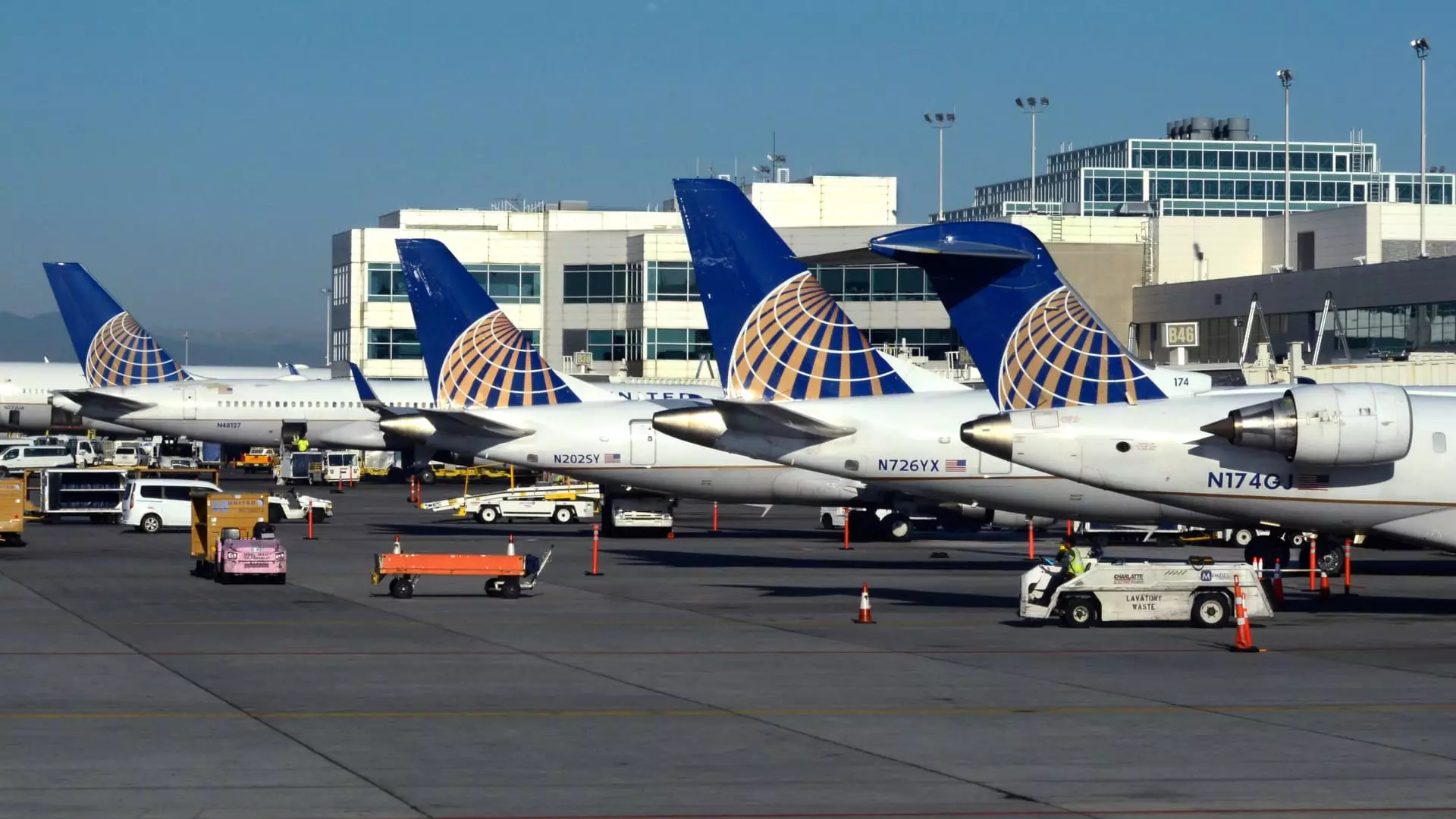The latest move by United Airlines to hike fees for airport lounge memberships and rewards credit cards serves as yet another powerful reminder that consumer loyalty, while seemingly valued in marketing, is often overshadowed by corporate profit motives. The leadership at United, represented by Richard Nunn, claims these increases come with added benefits and perks. However, such a narrative can feel disingenuous, especially when one considers the long-standing relationship between airlines and their consumers, which often hinges on trust and the perception of value.
Emphasis on Profits Over Passengers
The $3.49 billion boost in “other” revenue, a significant portion of which stems from co-branded credit card spending and airport lounge fees, paints a stark picture. It signals that airlines, including United, are increasingly prioritizing premium pricing strategies over actual service improvement. Historically, airlines thrived on a model where loyalty was rewarded rather than monetized to this degree. This shift raises important questions: Are air travel and its associated perks becoming out of reach for the average traveler? As more consumers are pushed out of rewarding experiences through price increases, the travel experience morphs into a gated community where only those with deeper pockets are welcomed.
Lounge Access: A Mirrored Reflection of Class Disparities
One of the most jarring aspects of these fee hikes is the tightening access to airport lounges, a once-coveted perk for frequent flyers. As airlines respond to increased numbers of premium-credit-card holders, lounge access feels more like a privilege than a right. In a world where class disparities are constantly scrutinized, United’s strategy of raising entry barriers for premium lounges echoes societal concerns about exclusivity and stratification. This shift may lead to a demographic where only the affluent can truly enjoy the luxuries and convenience associated with travel. Ultimately, it bolsters the idea that United is willing to sacrifice inclusivity for profit margins.
Consumer Resilience and Market Response
Despite these grim developments, there exists a resilience among consumers who may push back against perceived corporate greed. There is a gritty undercurrent of dissatisfaction that can ripple through travel communities and social media platforms, allowing consumers to raise their collective voices against what they perceive as unfair pricing practices. If enough travelers reject these heightened fees, airlines may reconsider their strategies and the benefits they offer. The burgeoning presence of alternative air carriers might serve in favor of consumers, as competition could drive better pricing.
Hope Amidst Corporate Maneuvers
As United Airlines seeks to expand its loyalty revenue amidst rising fees and complex benefit structures, it must tread carefully. Consumers are not only vocal about their dissatisfaction; they’re also willing to switch allegiance for better value. The need for a thoughtful rebalancing of cost and value should not fall on deaf ears. The race to the top of the profit spectrum comes with the risk of alienating the very customers who helped build the foundation of these loyalty programs. In a landscape where the average traveler feels increasingly penurious, airlines should seriously reconsider their trajectory to ensure they don’t lose their grounding in a competitive market.

